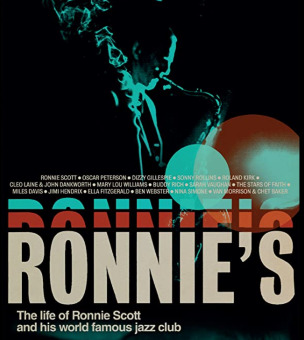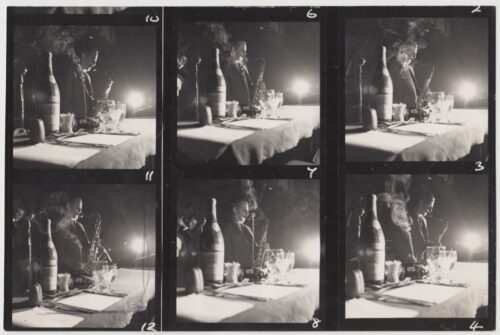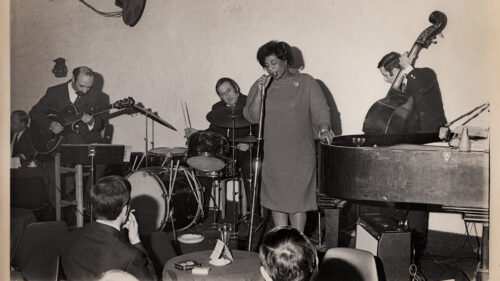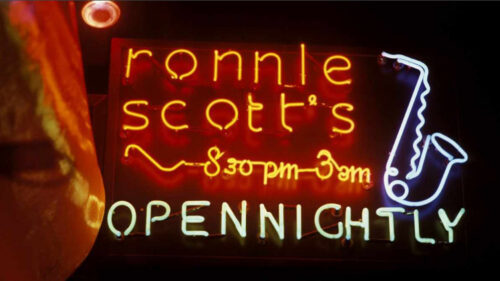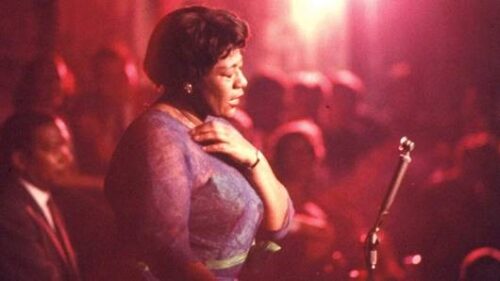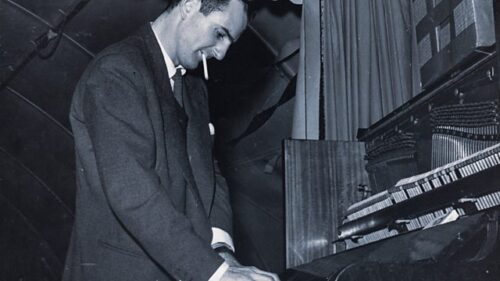GREAT RONNIE SCOTT
Ronnie Scott (1927-96) was the top British tenor-saxophonist of the late 1940s/early ‘50s before Tubby Hayes emerged on the scene, and he was one of the first British beboppers. His big tone and swinging style (influenced a little by Lester Young and Stan Getz) was featured on many fine recordings during the 1950s and he co-led the two-tenor group the Jazz Couriers with Hayes for a few years. In 1959, he threw caution to the wind and, along with altoist Pete King (1929-2009), opened up Ronnie Scott’s, a musicians’ club run by musicians. Within a short period of time Ronnie Scott’s was recognized as the top jazz club in England, a position it still holds more than 60 years later.
Ronnie’s is a 102-minute film written and directed by Oliver Murray that pays tribute to both the saxophonist and the club. Utilizing many short bits of vintage footage (both black & white and color) and photos along with narration from a couple dozen witnesses to the era, it expertly tells the Ronnie Scott Story. Among the many who reminisce and analyze the period are members of Ronnie Scott’s staff, Kyle Eastwood, Georgie Fame, music journalist John Fordham, John Dankworth, Sonny Rollins, Quincy Jones, Stella King (Scott’s wife), their daughter Rebecca Scott, Mel Brooks (very briefly), Pete King and Ronnie Scott himself.
While music is heard throughout most of the documentary and such greats as Oscar Peterson, Rahsaan Roland Kirk, Dizzy Gillespie, Sonny Rollins, Cleo Laine, Mary Lou Williams, Buddy Rich, Sarah Vaughan, Miles Davis (in 1969), Ella Fitzgerald, Nina Simone, Van Morrison with Chet Baker and even Jimi Hendrix (the guitarist played his very last gig at Ronnie Scott’s before passing away), the excerpts are all-too-short. It makes one hope that these performances (some of which have been released) will someday be put out in a series of DVDs.
Paul Trewartha’s editing is excellent throughout the film and the narrative is quite coherent and unified despite the large number of sources. One hears Ronnie Scott talking about his early days when he took up playing music during World War II, performing with dance bands, and enduring the difficulties of wanting to play bebop and modern jazz when swing-oriented dance music was much more popular in England. Against all odds, he had success with Ronnie Scott’s and remained active as a saxophonist but, unknown to just about everyone, he suffered from serious depression, leading to his suicide in 1996 when he was a month shy of turning 70. The most touching part of the film is seeing Ronnie Scott’s funeral march which had a plastic saxophone hanging on top of his hearse while on the soundtrack Ben Webster (from 1965) is heard playing “Over the Rainbow.”
The last ten minutes of the film moves to near-recent times with the club in 2019 continuing under new ownership, celebrating its 60th anniversary, and continuing the important legacy of Ronnie Scott. Suffice it to say, Ronnie’s is well done.
photos © Freddy Warren; Reel Art Press
Ronnie’s
Abacus Media Rights and Orofena Films
UK | 2020 | color |102 minutes
playing DOC NYC thru November 29, 2020
